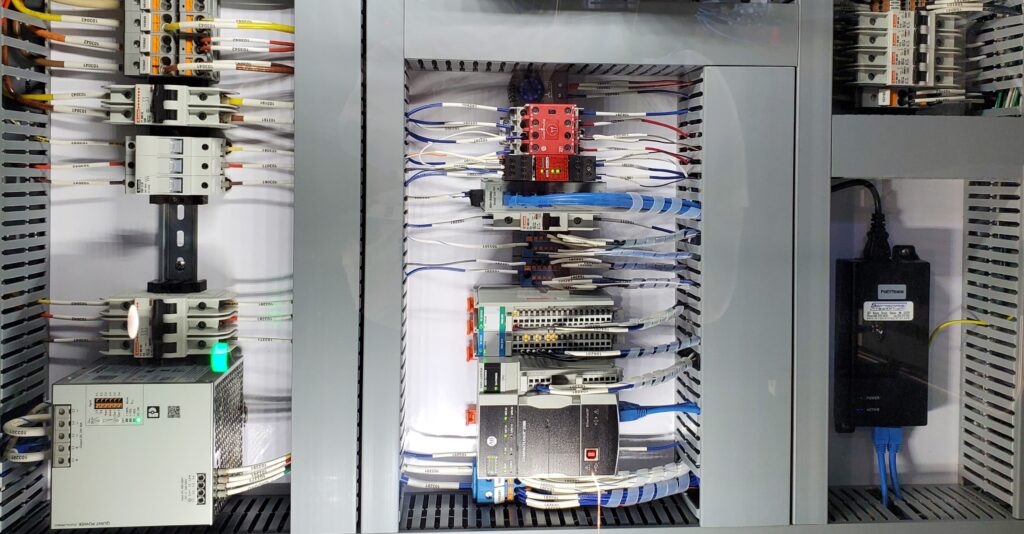Explanation of Electrical Control Panels
Electrical control panels are so common that we barely notice them. They directly control nearly all manufacturing equipment and processes. When properly designed and integrated, they also ensure safety, reliability, product quality, and process efficiency. They typically include the following items:
- An Enclosure: This is typically a metal cabinet that houses a removable metal panel to which various components are fastened. Enclosures must be UL-rated and built for the environment in which they will be located to keep water, dust, vapors, and excessive heat out. This will maximize the longevity of the components within.
- Electrical Components: In a typical electrical control panel there is a disconnect switch for the main power, a protective device for the main power, power distribution blocks, protective devices for each of the branch circuits, transformers, AC-DC power converters, contactors, relays, motor starters, motor drives, controllers, wire ducts, and terminal blocks.
- Controllers: There may be programmable logic controllers (PLCs), network switches, human machine interfaces (HMI touchscreens), push buttons, manual selector switches, indicator lights, and other devices.

Advantages of PLC Control Panels
- Simplifying and centralizing control so operators can make better decisions and easier adjustments as needed.
- Optimizing equipment and processes by using various instruments to automatically maintain process variables and collect data that can be analyzed to improve recipes, product quality, and process efficiency, and develop predictive maintenance schedules.
- Enhanced Safety of being located away from the hazardous mechanisms of the equipment with safety controllers and safety devices such as two-handed controls, laser scanners, light curtains, interlocks, etc. UL-listed control panels and components ensure that they are compliant with safety codes and regulations, helping to prevent fires, explosions, and electrical shocks.
The optimization, safety, and efficiency that control panels provide maximize reliability, product quality, and efficiency. For more information about the value-adding benefits of electrical control panels, please contact an expert at JHFOSTER.